Out Now
The Mental Health Issue
Current Issue
The Mental Health Issue
AUG - SEPT 2025

While we all like to think we’re open-minded, keen for fresh ideas and have a mindset for success, the truth may well be a little different. Beware confirmation bias.
We all know that if you search long enough online you’ll find something to validate your opinion. Looking for positivity about that new ute you’re thinking of buying? You’ll find it. Looking for a reason not to buy that new ute you’re thinking of buying? You’ll find that too.
For, deep down, knowing we were right all along has a certain appeal; as Warren Buffett said, “What humans are best at is interpreting all new information so that their prior conclusions remain intact.”
What we have here folks is good old confirmation bias – which, in layman’s terms – means seeking out, or interpreting, information, opinions or data to validate your original thoughts.
Yep, boss – right all along. Again.
In the not-so-distant past, it didn’t pay to voice another opinion at work. If you disagreed with your boss – or even a more experienced member of the team – you’d be branded a troublemaker. And no one wanted that.
Today, it’s different – well, most of the time, anyway.
Of course, this all falls into the diversity category—diversity of thought is one of the biggest direct business benefits a diverse staff can bring to a company—and the stats back it up, too.
According to the Diversity Council of Australia, diverse and inclusive teams are five times more likely to be innovative than non-inclusive teams, five times more likely to work effectively together, and four more times likely to provide excellent customer service.
Having those diverse perspectives to contribute to everything from culture to business opportunities is important right throughout the business work – for example companies in the top quartile for board gender diversity are 27% more likely to financially outperform companies in the bottom quartile.
Of course, there’s an inherent danger of confirmation bias here, too – however, while some of the huge range of studies into the benefits of diversity and inclusion have been flagged for flawed methods of discovery, or for overemphasising the impact diversity and inclusion can have, it’s widely accepted that diversity of experiences and thought has a positive effect on business outcomes.
However, diversity in this respect is a broad church, encompassing different perspectives, abilities, knowledge, attitudes and information styles – as well as demographic characteristics.
And look, that’s all well and good in theory. But in practice, it doesn’t matter how diverse your team is if you don’t create the right environment for them to give their honest takes.
It’ll create a productive, enjoyable environment to work in – and helps build buy-in and accountability.
And you might just stumble on some great new ideas. Or have confirmation that what you’re actually doing is more certainly the right way to go about it.
And, at least when people say, ‘Great Idea boss!’, they’ll actually mean it.
Want a good example of confirmation bias? Take a deep look at the social media content you’re served. Social media algorithms are increasingly delivering information and posts that confirm the thoughts and opinions it believes you have, based on your social media interactions, likes and comments.
And if you want to go down a real rabbit hole, check out how social media influences elections – particularly the US election. ‘Influencers’ – allegedly paid by countries with vested interests – serve up content that confirms views and deeply polarises, with the intention of influencing how the vote goes.
So next time you see something being served up to you online, stop and think about exactly why that post is reaching you, right now.
Keep up to date with our latest news and competitions by subscribing to our regular newsletter.

Issue 183
OCT - NOV 2024

Issue 182
AUG - SEPT 2024

Issue 181
JUN - JUL 2024

Issue 180
APR - MAY 2024

Issue 179
FEB - MARCH 2024

Issue 178
DEC 2023 - JAN 2024

Issue 177
OCT - NOV 2023

Issue 176
AUG - SEPT 2023

Issue 175
JUN - JUL 2023

Issue 174
APR - MAY 2023

Issue 173
FEB - MAR 2023

Issue 172
DEC 2022 - JAN 2023
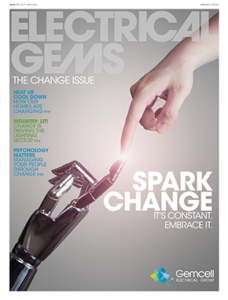
Issue 171
OCT - NOV 2022

Issue 170
AUG - SEPT 2022

Issue 169
JUN - JUL 2022

Issue 168
APR - MAY 2022

Issue 167
FEB - MAR 2022

Issue 166
DEC 2021 - JAN 2022

Issue 165
OCT - NOV 2021

Issue 164
AUG - SEPT 2021
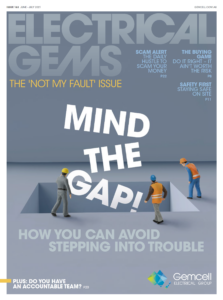
Issue 163
JUN - JUL 2021
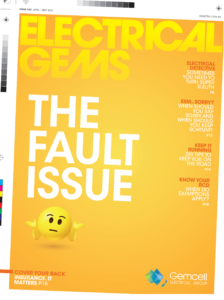
Issue 162
APR - MAY 2021

Issue 161
FEB - MAR 2021

Issue 160
DEC 2020 - JAN 2021

Issue 159
OCT - NOV 2020

Issue 158
AUG - SEPT 2020

Issue 157
JUN - JUL 2022

Issue 156
APR - MAY 2020

Issue 155
FEB - MAR 2020

Issue 154
DEC 2019 - JAN 2020

Issue 153
OCT - NOV 2019

Issue 152
AUG - SEPT 2019

Issue 151
JUN - JUL 2019

Issue 150
APR - MAY 2019

Issue 149
FEB - MAR 2019
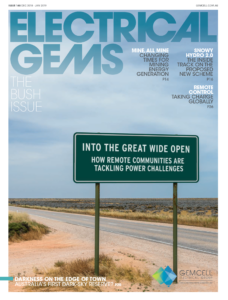
Issue 148
DEC 2018 - JAN 2019

Issue 147
OCT - NOV 2018

Issue 146
AUG - SEPT 2018

Issue 145
JUN - JUL 2018

Issue 144
APR - MAY 2018

Issue 143
FEB - MAR 2018

Issue 142
DEC 2016 - JAN 2017
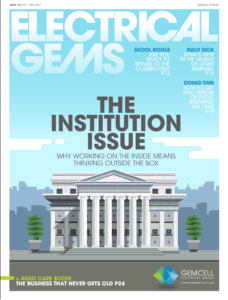
Issue 141
OCT- NOV 2017

Issue 140
AUG - SEPT 2017

Issue 139
JUN - JUL 2017
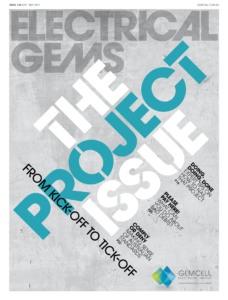
Issue 138
APR - MAY 2017

Issue 137
FEB - MAR 2017

Issue 136
DEC 2016 - JAN 2017

Issue 135
OCT - NOV 2017

Issue 134
AUG - SEPT 2016

Issue 133
JUN - JUL 2016

Issue 132
APR - MAY 2016

Issue 131
FEB - MAR 2016

Issue 130
DEC 2015 - JAN 2016

Issue 129
OCT - NOV 2015

Issue 128
AUG - SEPT 2015

Issue 127
JUN - JUL 2015

Issue 125
APR - MAY 2015

Issue 125
FEB - MAR 2015

Issue 124
DEC 2014 - JAN 2015

Issue 123
OCT - NOV 2014

Issue 122
AUG - SEPT 2014

Issue 121
JUN - JUL 2014

Issue 120
APR - MAY 2014

Issue 119
FEB - MAR 2014

Issue 118
DEC 2013 - JAN 2014

Issue 117
OCT - NOV 2013

Issue 116
AUG - SEPT 2013

Comments (0)
Write a Comment